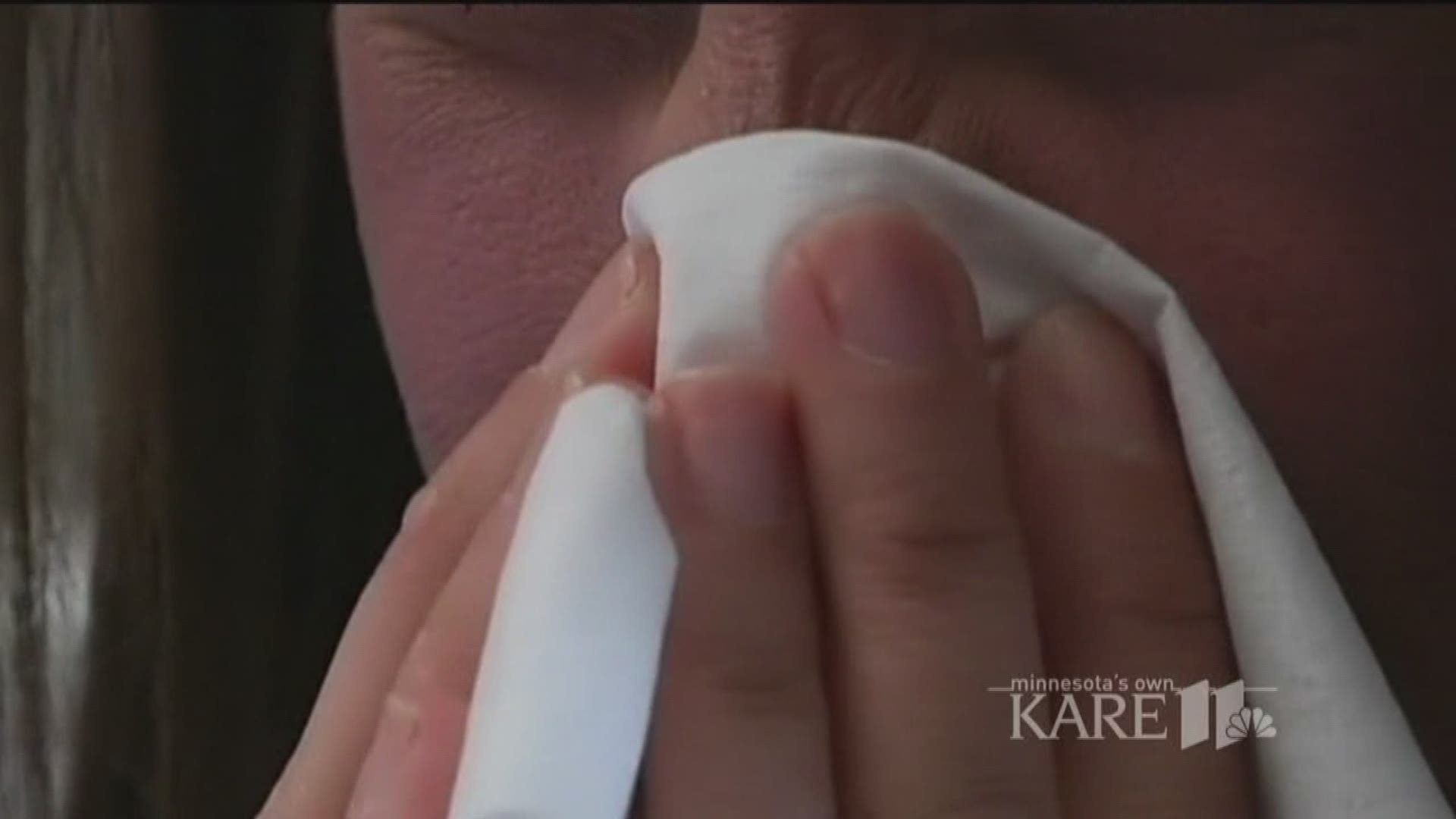EDINA, Minn. -- How often do you wash your clothes? How often do you shower? Wash your hands? Sanitize the kitchen? The dishes? The kitchen table? Could it be that too much cleaning is behind a growing rate of allergies among Americans?
Allergy rates have steadily increased in the US over the past 20 years, and a theory known as the "hygiene hypothesis" is gaining popularity in explaining why.
Roughly 50 million Americans suffer from allergies (about one-sixth of the population), according to the U.S. Centers for Disease Control and Prevention.
First, the data.
Studies have shown native-born citizens have higher allergy rates than foreign-born citizens.
Food allergies among U.S. children have grown about 50 percent from 1997 to 2011.
The big question allergists and immunologists are trying to answer is why.
"You need to be exposed to a certain amount of bacteria to build you immune system up properly," said Dr. Hemalini Mehta, an allergist for Allergy and Asthma Specialists in Edina.
Mehta says the theory suggests urban America is too sterile, too clean.
For children, especially infants, lack of exposure to bacteria can send the wrong signals to their developing immune systems, which can trigger allergies.
Doctors at the Mayo Clinic say it's unclear what exactly is causing this disparity and growth of allergies in the world, but they believe it has to do with the way we live.
"We also see this in some more controlled studies in humans where if you look at families who use a dishwasher versus those who sort of hand wash their dishes, it turns out that the families . . . sterilizing their dishes, have higher rates of allergic diseases," said Dr. Pritish Tosh who specialized in infectious diseases at Mayo Clinic.
So what do you do? Not clean your home? Mehta isn't suggesting children take a mud bath in the back yard every morning, but giving a second thought to the three-second rule is a start.
"Dirt is good in the sense that it exposes children to bacteria that may help their immune system, but if there is an illness that runs in the family, like influenza, then it's OK at certain points to clean so your whole family doesn't get sick," said Mehta.
The old theory on food allergies was to limit exposure to certain foods in young children.
Mehta says that research has changed significantly.
Now allergists recommend children try as many foods as possible by the age of one.

